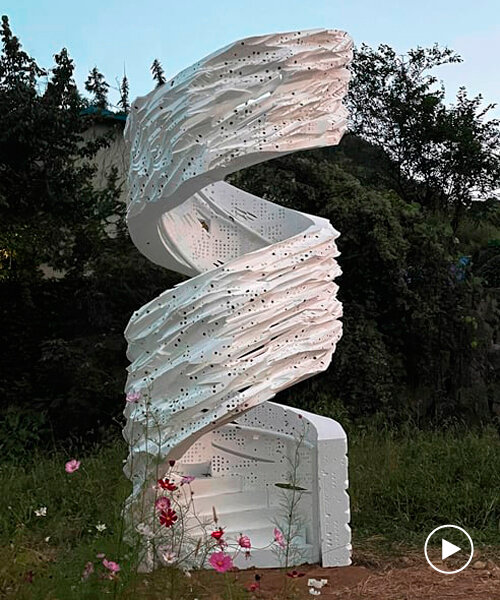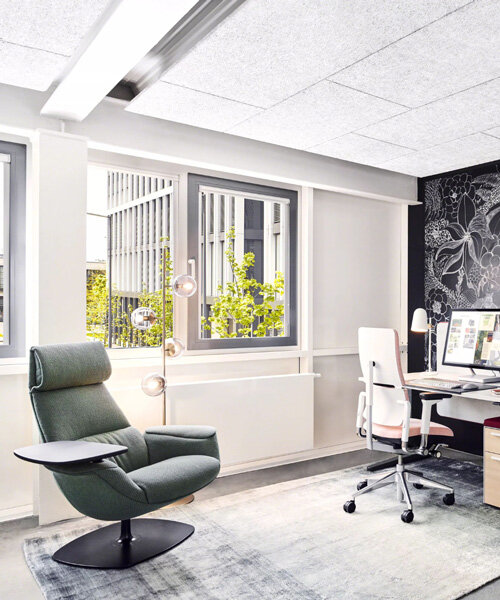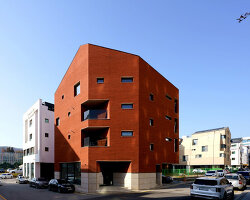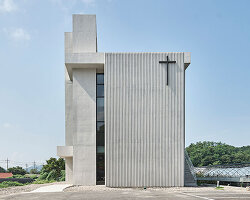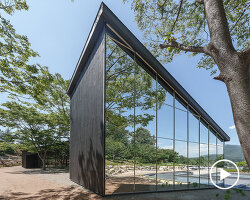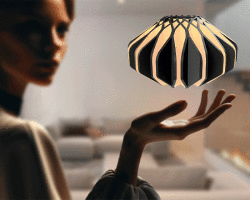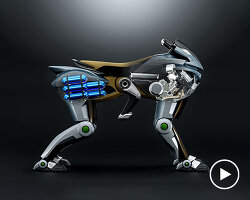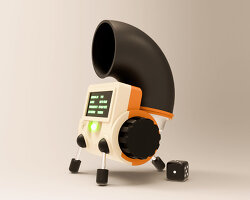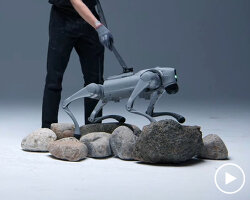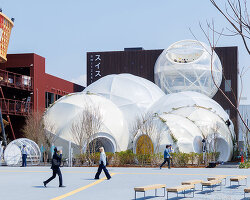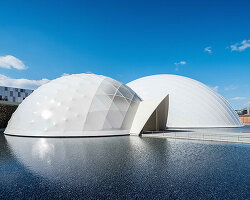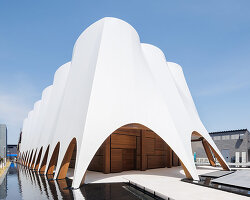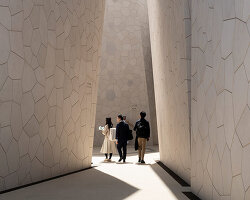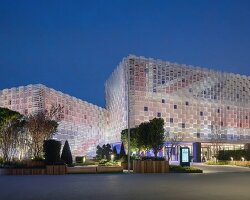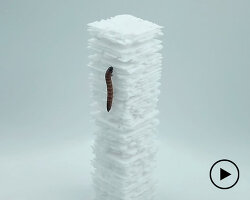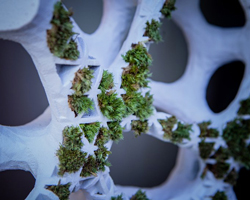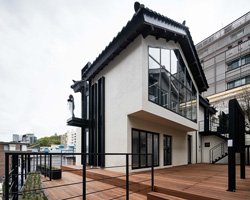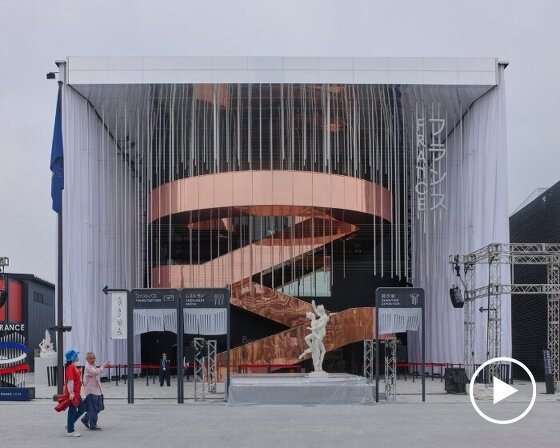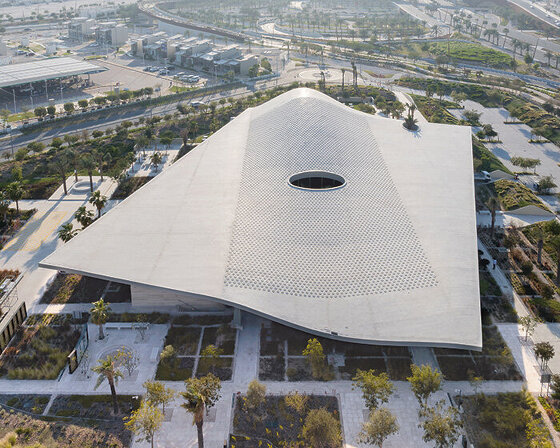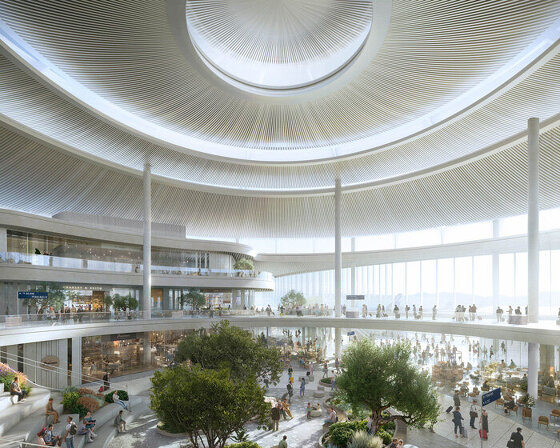robot-fabricated staircase in korea limits construction waste
Designer Yong Ju Lee installs a robot-fabricated pavilion in Gyeonggi-do, South Korea, to be decomposed by live larvae. ‘Decomposition Farm: Stairway’ is a temporary installation suggesting one possible solution to the environmental issues regarding construction waste in the architectural field.
Given that the amount of carbon dioxide emitted from the construction industry reached the highest level in 2020, accounting for 38% of all energy-related emissions, the team turned to eco-friendly material research for their project. Polystyrene well known as Styrofoam can take up to 500 years to be biodegraded, however, researchers recently confirmed that mealworm, the larva of the beetle can eat polystyrene, decompose it through its stomach enzyme and excrete in safe substance, enough to grow crops. To build this ‘digestible’ structure, made of polystyrene, a 6-axis industrial robotic arm was employed.
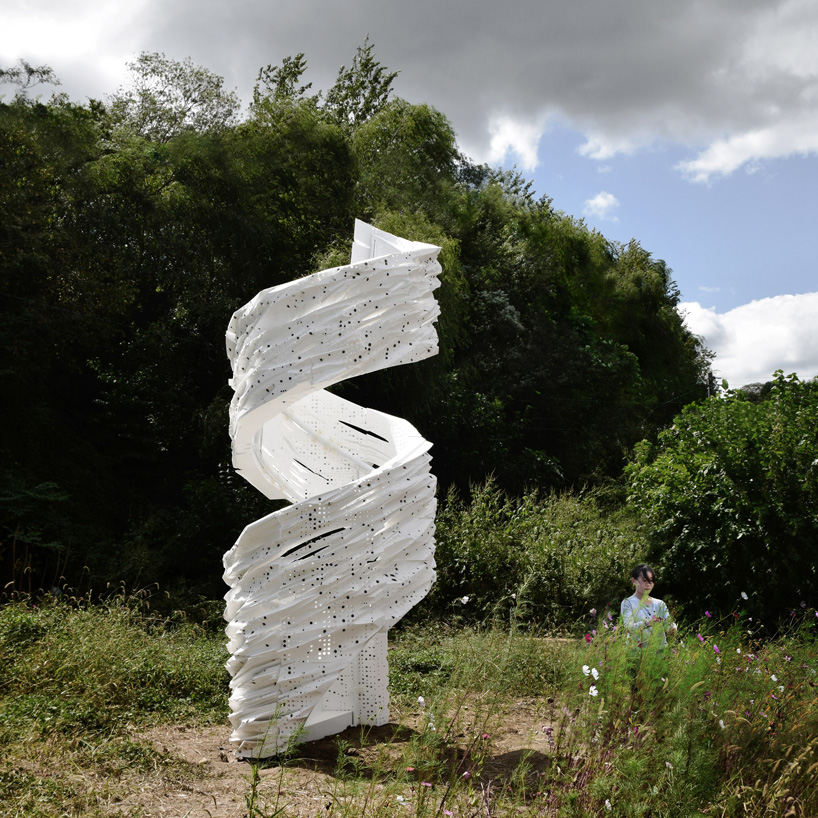
all images courtesy of Yong Ju Lee Architecture
hot wire cutter + robotic arm carve out chunks of Styrofoam
The main design methodology relies on the 1.5-meter-wide hot wire cutter attached at the end of the robotic arm, which can carve out a chunk of foam. To manipulate straight lines of hot wire as a design constraint, all shapes are made of a ruled surface. In geometry, a surface S is ruled if through every point of the curved surface lies a straight line. ‘Without any modeling software in the late 1800s, Antoni Gaudi applied the forms of ruled surfaces to simplify the construction using straight lines […] now, thousands of computer-generated surfaces are boolean-ed out elaborately from the volumetric mass through exquisite robot control’, adds the designer.

spiral stairway made out of carved polystyrene
Mealworms eat + digest the polystyrene melting it into nature
Carved polystyrene foams are drilled for a large number of holes to provide a habitat for mealworms. Mealworms eat and digest this material, and then excrete it in harmless feces. This process supplies nourishment to moss, also attached to the foam, eventually setting a new ecosystem in the artificial environment. Mealworms are provided frequently on this man-made structure that gets melted into nature. Linear-patterned elements are aggregated into a large spiral staircase, that involves human interaction in this systematic cycle. This radical experiment can suggest a new sustainable approach in the architectural field, even more effective than carbon-zero construction.

climbing the decomposing staircase
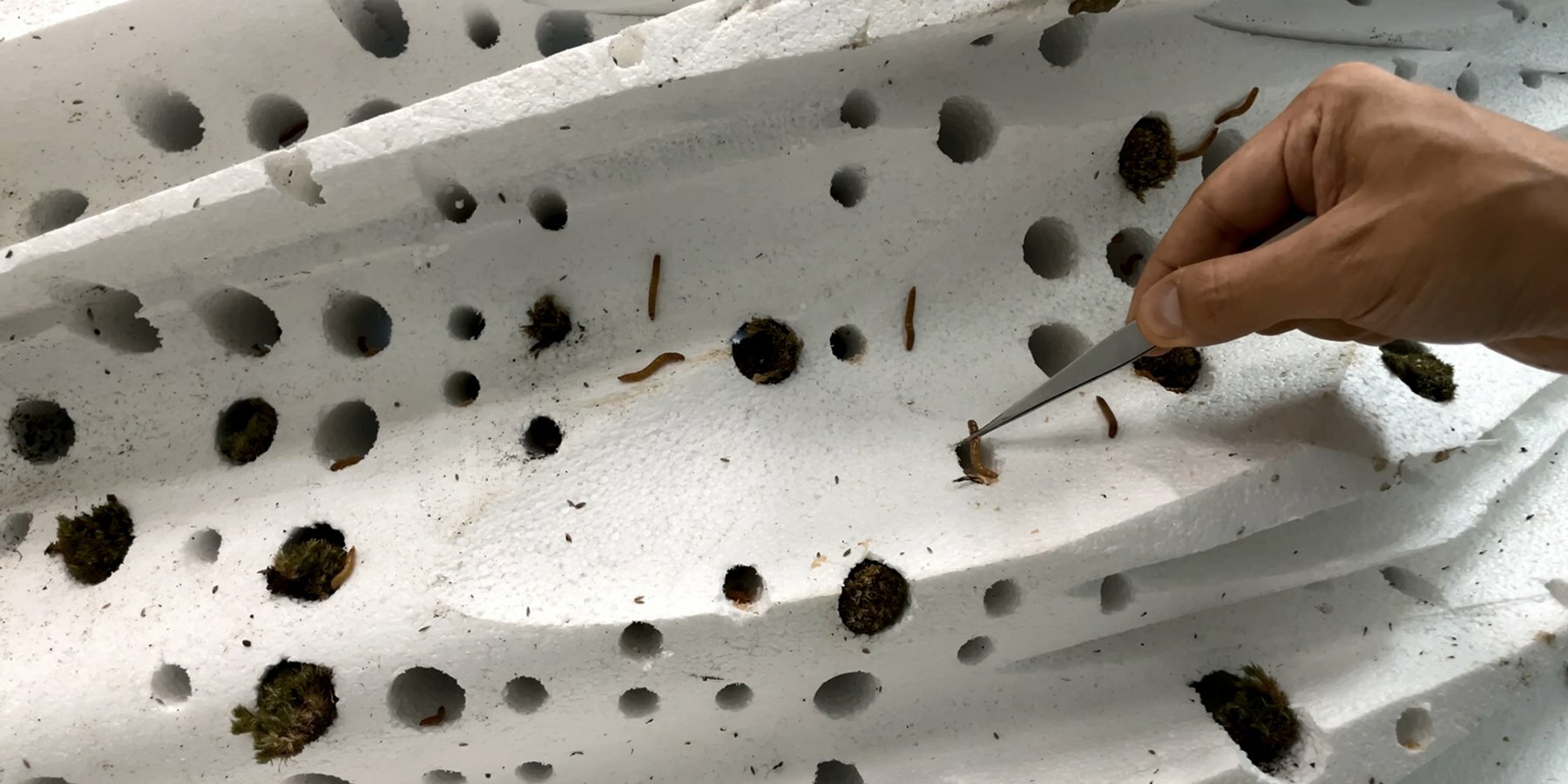
placing mealworms on the carved structure

patterned surface robot generated form

pierced polystyrene shapes spiral staircase
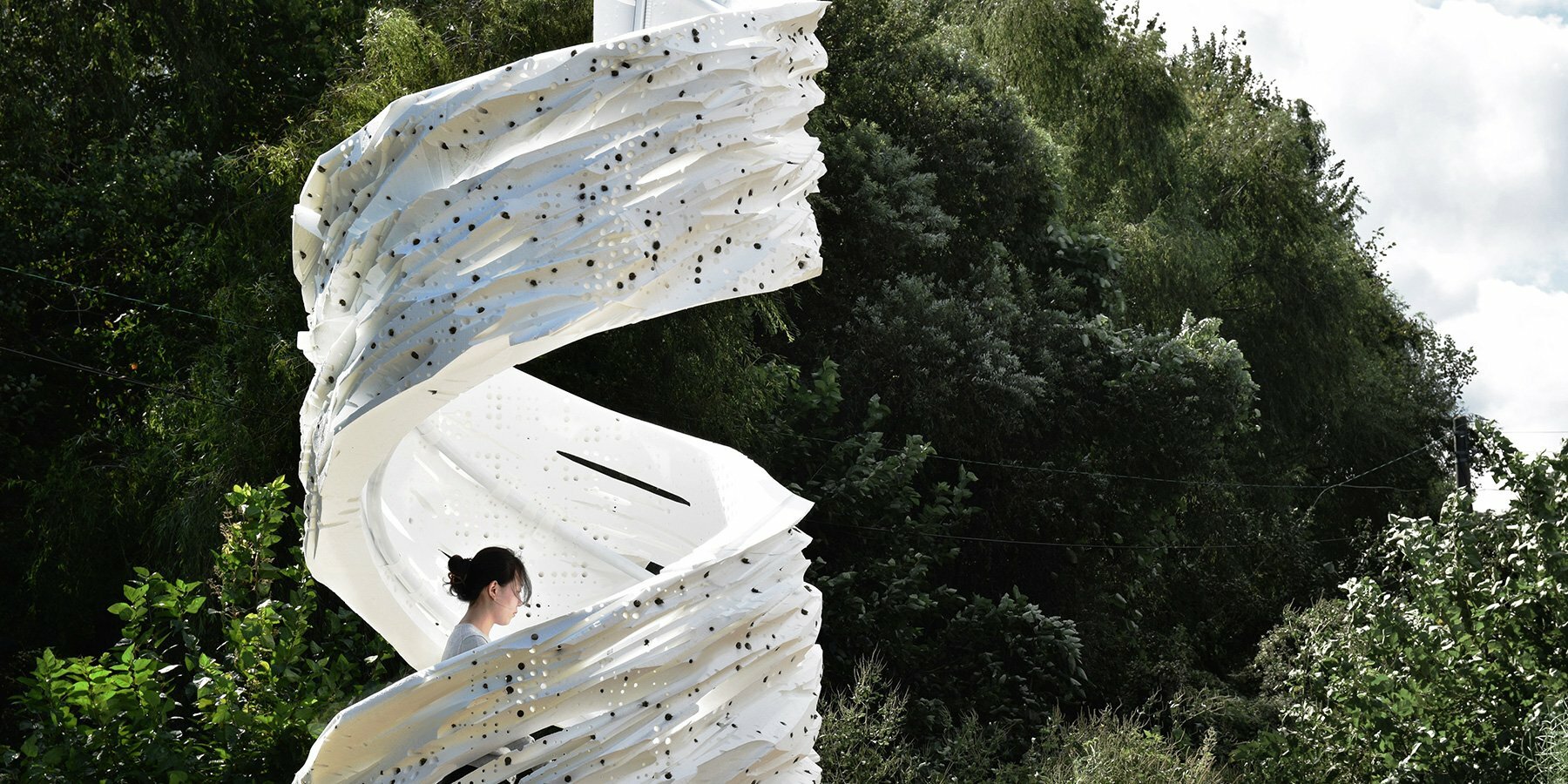
organic curved form was generated by robot-fabrication
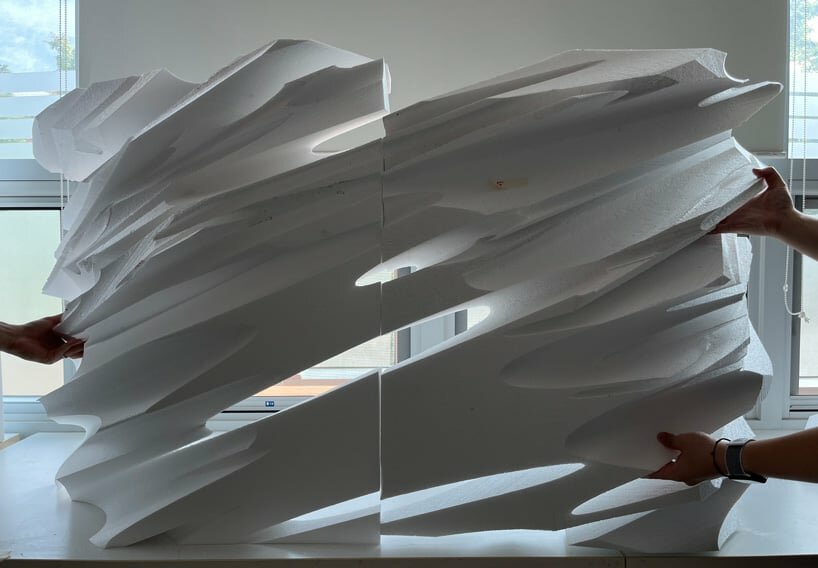
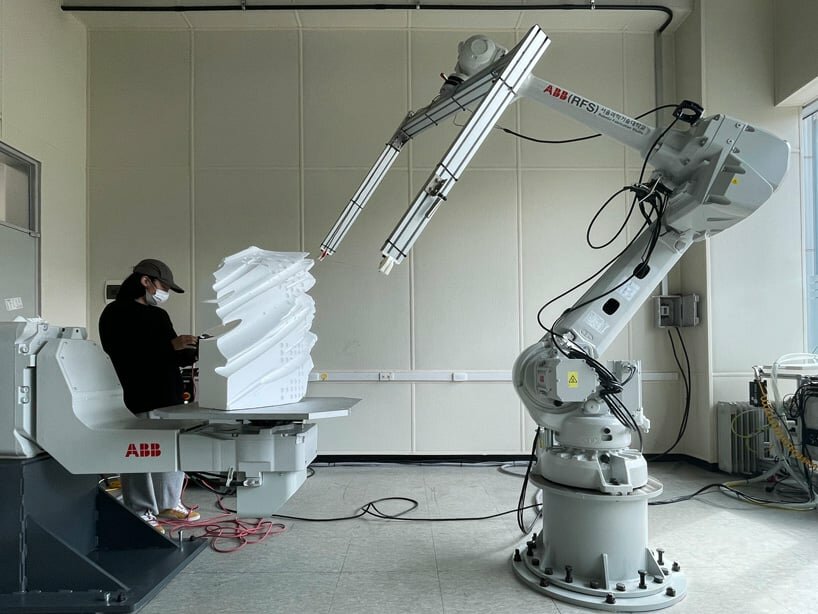
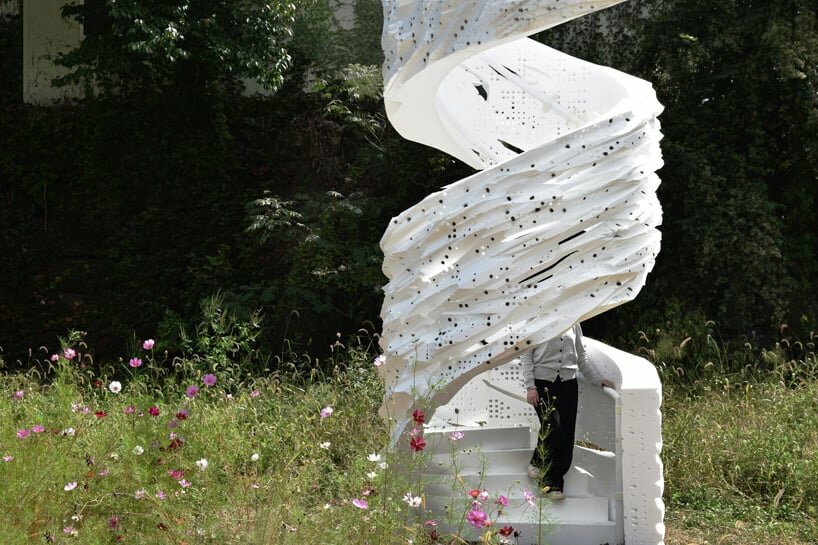
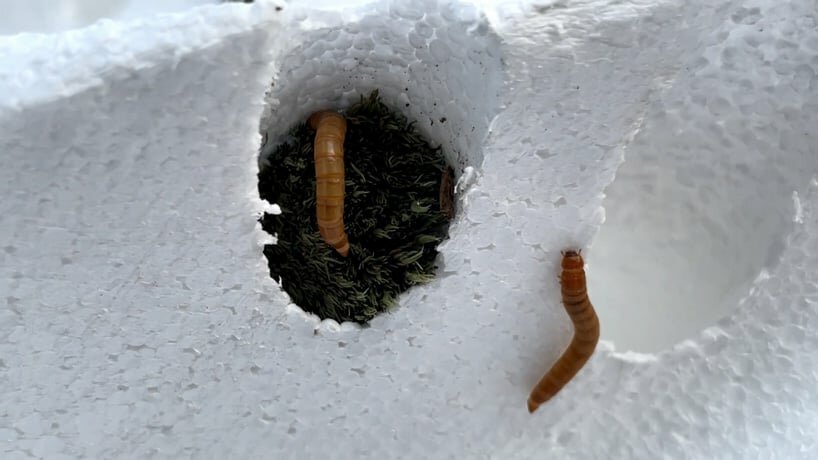
project info:
name: Decomposition Farm: Stairway
designer: Yong Ju Lee Architecture | @yongjulee.arch
location: Gyeonggi-do, South Korea
fabrication: (RFS) Robotic Fabrication Studio from SeoulTech
team: Rayoung Kim, Dachan Oh, Hongjik Shin, Bada Jeong, Yujin Lee, Jihwan Kwak, Seoungwoo Kim
video editing: Yujin Lee
designboom has received this project from our DIY submissions feature, where we welcome our readers to submit their own work for publication. see more project submissions from our readers here.
edited by: christina vergopoulou | designboom
